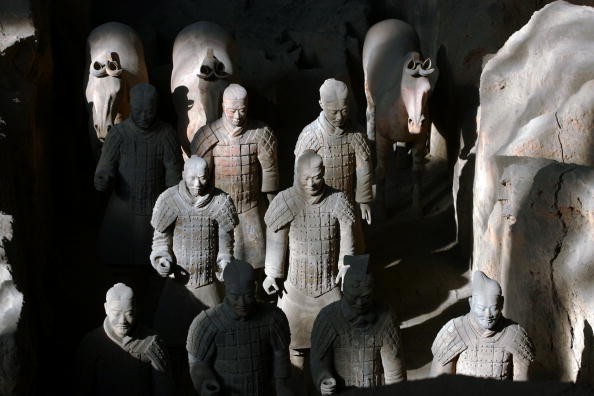In China, there is a growing occurrence of building replicas of world-famous landmarks.
The Terracotta Army, one of China's top destinations for tourists and situated in the city of Xi'an in Shaanxi Province, has a full-scale copy some 1,000 km away in Anqing City, Anhui.
The copycat is gaining popularity, especially for tourists who cannot go to the original site in Xi'an.
According to Mail Online, the admission fee to the fake site is 120 yuan which is a bit cheaper than the 150 yuan at the real Army site.
The Terracotta Army consists of life-size clay soldiers, horses and weapons. According to National Geographic, they were accidentally discovered in 1974 when workers were digging a well outside the city of Xi'an.
The archaeologists sent by the Chinese authorities upon notification by the workers said that the Terracotta Army belongs to an extravagant mausoleum of Ying Zheng who assumed the throne in 246 B.C. at the age of 13 and later on adopted the name of Qin Shi Huang Di, meaning the First Emperor of Qin.
The Army was created to escort the first emperor of China into the afterlife, the archaeologists said.
According to China Highlights, it is regarded as one of the greatest archaeological sites in the world, and one of the greatest discoveries of the 20th century.
Not only international landmarks have been copied in China but even its own. Sections of the renowned Great Wall have been faked in various places in the country. Tiananmen Square has also been replicated.
The Pyramids of Egypt, the Eiffel Tower and Arc de Triomphe in France, the Tower Bridge in London, and the White House in Washington, D.C., are among the sites which have been imitated in different parts of China.
In addition, if the project called Sanweng Town successfully pushes through, the city of Fuzhou in the Fujian Province would soon see the mockup of Shakespeare's hometown in Stratford, England.



























